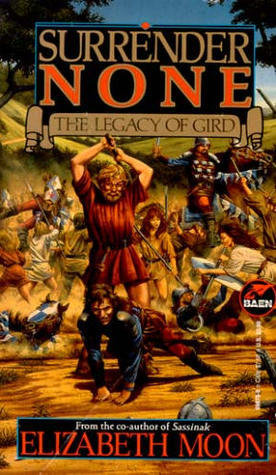What do you think?
Rate this book


542 pages, Paperback
First published June 1, 1990
"I told you a little – about my daughter and her husband – but not all that eld me here. It began long before, and over the years I built a wall fo the stones I swallowed – stones of anger and stones of sorrow. A wall to keep myself at peace, and safety within – and it did not work." He ran a hand through his thinning hair, and scrubbed his beard. "I don't know if any law is fair, but the law the lords put on us in not fear, and no man can live safe under it. I don't know if all the lords are alike, but some of 'em – Kelaive, for one – and not only greedy, but cruel. They like to hurt people; they like to see people suffer. Such men cannot rule wisely, or fairly. And when such men rule, no one can live an honest life. [...] I have taken that wall down," Gird said. "Those stones – those stones I will throw at our enemies. Those stones, which I bring to this circle – because the Lady herself cannot give us peace unless we drive off the alien lords who rule us."
”I wish I had done what you did,” he said. “I wish I’d thought of that. All I thought of was fighting itself – I kept trying to learn swordfighting –”
”My first two sons died of fever; the lord refused us herb-right in the wood. My wife lost two babes young, one from hunger and one from fever. My eldest daughter they raped; killed her husband. The babe died unborn. My youngest son they struck down; he lives. Another daughter they struck down, breaking her arm; I know not if she lives or dies. And my brother’s children, that I’d taken in: two of them dead, by the lords’ greed. And that’s children. I lost friends, my parents, my brother.”




